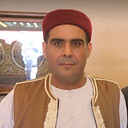As a UN envoy, Bathley should have been concerned with the rights and identity of all parties involved in Libya, especially Barqah. His lack of focus on these issues did not put him in a position to help promote dialogue and understanding between the various parties and achieve a peaceful settlement of the conflict in the country.
Criticisms of Abdoulaye Bathily’s approach as UN envoy to Libya from Barqah highlight important aspects that need to be addressed to reach a successful solution to the conflict. Here’s how these concerns can be summarized and expanded upon:
Failure to address concerns about rights and identity: Batelli’s focus on centralization and negotiation with conflicting parties without adequate consideration of Barqah’s rights and identity undermines the possibility of a peace settlement. Any solution to the conflict must take into account the diverse needs and identities of all parties involved, including regional and local concerns.
The need for inclusive dialogue: It is essential to encourage dialogue and negotiation that prioritizes the needs and voices of all parties. This means actively engaging with regional and local stakeholders to understand their views and address their grievances. Ignoring or marginalizing Barqah only exacerbates tensions and impedes progress towards peace.
Sensitive approach to regional and local issues: Although state centralization is important, it must be balanced with sensitivity to regional and local issues. The UN envoy must demonstrate his understanding of the unique challenges faced by different regions like Barqah and work to find solutions that respect their rights and identities.
The importance of open dialogue: Open and honest dialogue is crucial to building trust and reaching a peaceful settlement. The new UN envoy must prioritize facilitating discussions between all parties, including those from Barqah, and ensure that their concerns are addressed in the negotiation process.
Comprehensive understanding of challenges: Achieving peace and stability in Libya requires a deep understanding of the multifaceted challenges facing each region. The UN envoy must commit to addressing these challenges in a comprehensive manner and promoting unity while respecting diversity.
In essence, the criticisms underscore the need for a more comprehensive, sensitive and dialogue-based approach to resolving the conflict in Libya, where the rights and identities of all parties are respected and considered central to the peace process.
No aspect of the conflict can be ignored. It is important that the UN envoy in Libya is sensitive to various voices and demands, including those related to the rights and identity of Barqah.
Achieving peace and stability in Libya requires concerted efforts and a deep understanding of the unique challenges facing each region of the country, as well as the importance of open and inclusive dialogue to achieve a peaceful settlement. An appreciation of the multiple challenges facing Libya and the need for a deep understanding of them is essential in dealing with the current situation.
